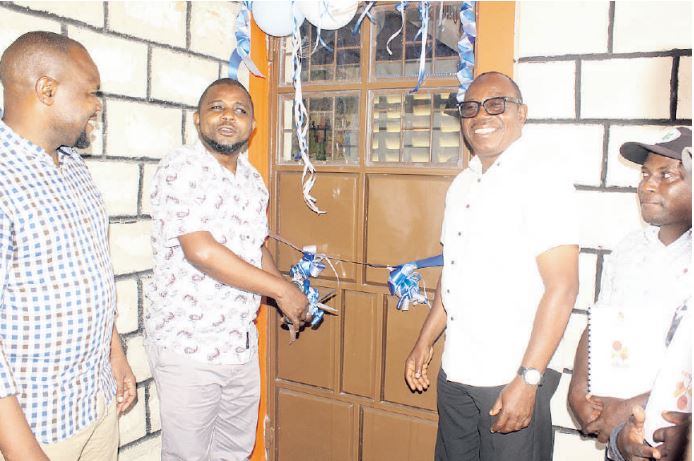
PWDs lament over exclusion in Ruto’s government
“We have been raising our voices, but our cries are falling on deaf ears,” Maalim said.
It will help children with sensory and developmental challenges
In Summary

For many years, families raising children with disabilities
in Kwale county have struggled to access early diagnosis, specialised care and
therapy.
Often, they were forced to travel long distances in search
of such crucial services, or worse, go without any support.
What was once a distant dream, however, is now a reality
with the launch of the county’s first Sensory Integration Unit at Kids Care
Kenya in Lunga Lunga, Kwale.
The state-of-the-art
centre has been launched by Kids Care in collaboration with the Ministry of
Health and the National Council for Persons with Disabilities (NCPWD).
It is expected to be a transformative milestone for children
living with sensory and developmental challenges, as well as those with
cerebral palsy, muscular dystrophy and other conditions. It’s for adults as
well.
The facility can serve at least five children per session,
providing timely and localised support to a population long overlooked by the
healthcare system.
NCPWD county disability services officer Emily Mwembe said
the facility will bridge a critical gap in access to disability services,
enabling early diagnosis and support for children and adults who often remain
undiagnosed or misunderstood within their community.
“With the launch of
this unit, hope is being restored as interventions tailored to improve
communication, mobility and overall independence will be offered,” Mwembe said.
She said it will not only bring critical services closer to
the people but also restore dignity, promote empowerment and illuminate a
brighter future for residents with disabilities.
Mwembe said the centre marks a turning point in how the
community views and supports persons with disabilities (PWDs), especially
children who have long been marginalised due to limited access to inclusive
services.
Through medical, psychological and educational assessments,
the centre will help determine children’s unique needs and direct them to
suitable learning institutions or government empowerment programmes.
Mwembe emphasised the importance of early intervention,
saying many children with disabilities go undiagnosed and unsupported for
years, which greatly reduce their potential.
The facility aims to break the barriers that have kept many
children hidden in homes.
The centre will be a hub where caregivers, teachers, and
health professionals can collaborate to create customised care plans and
monitor the progress of PWDs.
Edward Gereza, the coordinator of Health and Rehabilitation
Services at Kids Care Kenya, urged parents, guardians and the entire community
to adopt the initiative and ensure no child is left behind.
“This is not charity;
it is justice. Every child, regardless of their ability, has the right to
thrive and to be seen, heard and supported,” he said.
The facility will complement government hospitals that
provide similar services, thereby strengthening overall service delivery.
It will ease the burden on major health facilities while
improving access to targeted care at the grassroots level.
Gereza said the facility will be a referral point for
surrounding health centres and schools, offering expert assessments, early
intervention, therapy, and follow-up support for children.
The initiative aligns with the government’s broader agenda
of inclusive development and equity in providing services.
“Our goal is to build a system that listens, responds, and
adapts to the needs of every citizen, including the most vulnerable. This
facility brings us one step closer to that reality,” Gereza said.

“We have been raising our voices, but our cries are falling on deaf ears,” Maalim said.

They say they lack representation in high-level decision-making organs such as the Cabinet.